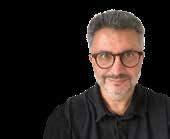
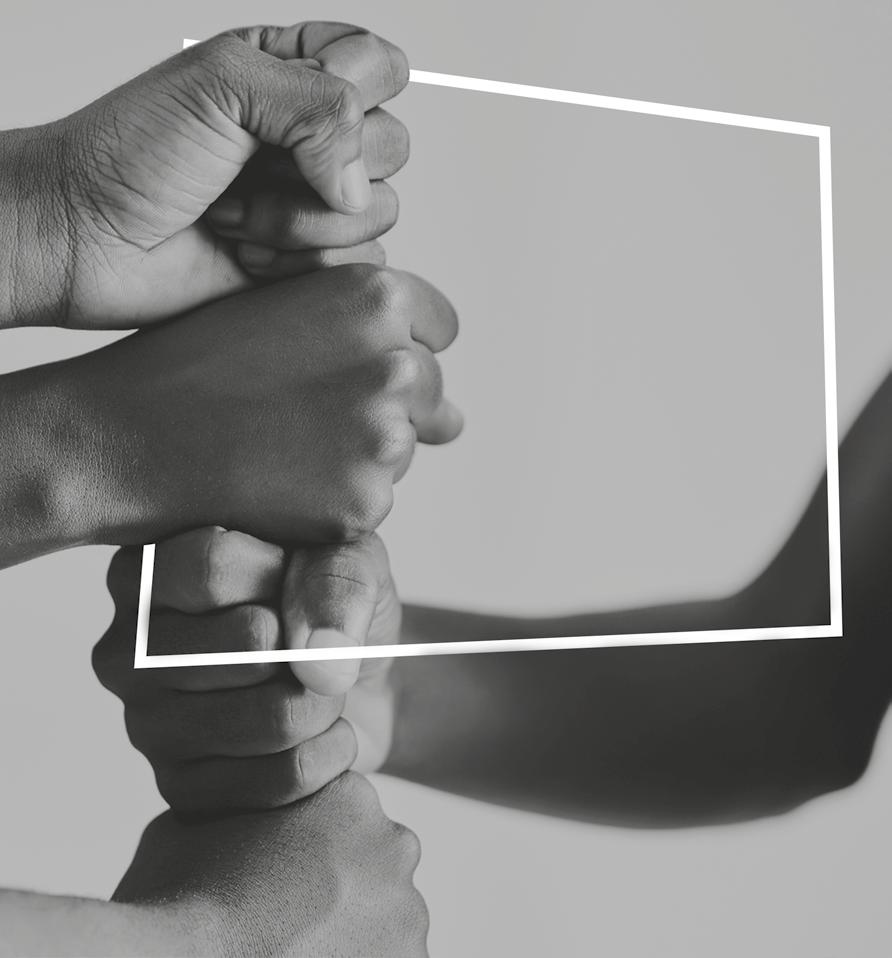
EMPOWERING CHANGEMAKERS FOR A BETTER SOCIETY A NEW WAY OF TALKING BUSINESS NICE TO MEET YOU Édouard Reis Carona, chief editor at OuestFrance /P.22 08 FEBRUARY 2023 BUSINESS AND RESEARCH Supply chain: the classic tale of putting all your eggs in the same basket /P.16 GOOD NEWS Business angels: diversity at the top /P.21 A BETTER SOCIETY DIVERSITY, A USER GUIDE P.04
THEY CONTRIBUTED TO THIS ISSUE… THANKS TO:
• Lucas Amaral Lauriano
• Benjamin Bréhin
• Mathieu Chassignet
• Mohamed Chtatou
• Jérôme Dumont
• Verena Ehrler
• Hélène Genéty
• Ronald McGarvey
• Gouri Mohan
• Marie Patfoort
• Laure Quédillac
• Édouard Reis Carona
• Anne-Laure Thomas
• Paul-Marie Vilbé
NUMBER 08
The magazine that looks at business in a different way.
IÉSEG
3 rue de la Digue - 59000 Lille
1 parvis de La Défense - 92044 Paris www.ieseg.fr
February 2023
Publishing director and chief editor:
Laure Quedillac
Editorial board: Alexandra Briot, Antoine Decouvelaere, Laetitia Dugrain-Noël, Manon Duhem, Andrew Miller, Victoire Salmon, Vincent Schiltz, Laure Quedillac
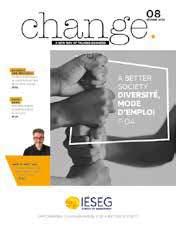
Design: Caillé associés
Editing: Caillé associés
Photo credits: Andrane de Barry, Armée de Terre, Céline DSM - Studio Zendegi, GRS IDF-OM, IÉSEG, iStock2023, Norauto France, Observatoire des villes du transport gratuit

A BETTER SOCIETY Success through diversity, a daily challenge /P.08
BUSINESS AND RESEARCH
Diversifying in order to grow: Norauto’s example /P.14
GOOD NEWS
Integration: the challenge of diversity /P.18
GOOD NEWS Mobility: things are changing but… /P.20
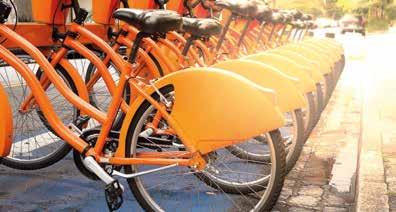

02 N°08 I A new way of talking business LOOK
REAL DIVERSITY
To study or to work at IÉSEG is to experience on a daily basis all the riches of diversity, or rather diversities. For the past fifteen years, the School has been cultivating “Internationalisation” at home, and is recognizable by the fact that its students, staff and professors on campus belong to one hundred different nationalities. Every day, each one of us comes across someone who is not quite like us, or not at all like us. Gender, age, disability, background, language or culture, diversity is everywhere - and the question arises of where we can find common ground, how we can understand each other, how we can reach out to each other. Nothing could be easier on paper, nothing more complex in reality. Going beyond intentions, taking diversity into account only makes sense at grass roots level and its success can only be measured by evidence, in respect of each and every one.
With 7,500 students, 500 employees and 2,000 international students, IÉSEG can certainly pride itself on experiencing diversity on a daily basis, if only through the cultural differences that make up its vitality. But making the school a culturally intelligent, inclusive, caring and respectful community cannot be decreed. It presupposes patient work that has to be done over and over again, a constant attention that finds its place in our educational project, in our research and in the training of our teams. This is demonstrated by the Cultural Diversity Passport, which all students must obtain before going on an international academic exchange. Another example is the creation of a centre of excellence for intercultural engagement, the IÉSEG Centre for Intercultural Engagement (ICIE). Created in 2016, it brings together researchers in management, human resources, marketing, etc. who explore the nature of relationships within organisations, the dynamics of diverse work groups and the development of intercultural skills. Finally, the «Dealing daily with diversity» training programme, aimed at all our employees, bears witness to this.
However, we must remain attentive: diversity is plural and other themes and other expectations are emerging, starting with greater social diversity. It is up to us to keep an eye on this every day and to take it on board in order to keep up with the world’s progress.
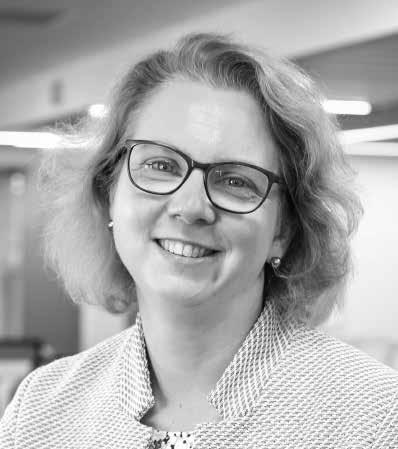
“Taking diversity into account can only make sense at grass roots level and its success can only be measured by evidence, with respect for each and every person.”
Caroline ROUSSEL IÉSEG’s Dean
03 A new way of talking business I N°08 BETWEEN US
FIND MORE ANALYSIS, INSIGHTS AND RESEARCH FROM THIS EXPERT ON IÉSEG INSIGHTS:
A BETTER SOCIETY DIVERSITY, A USER’S GUIDE
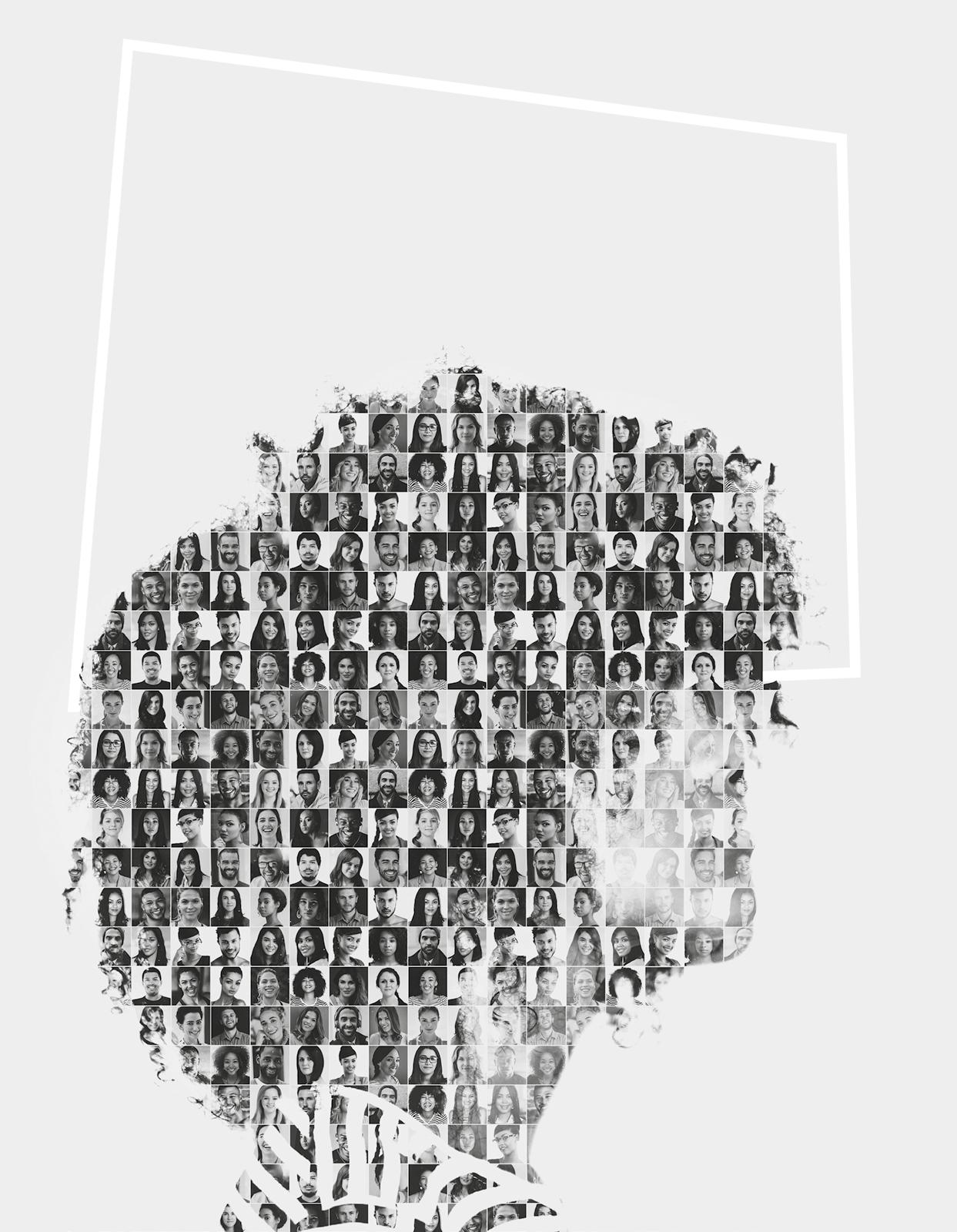
Media, advertisements, company charters, public policies... It is a word found everywhere, often in the plural. But what are we actually talking about when we talk about diversity? What does this term mean, considering that it is sometimes used in all sorts of ways? Is the planet increasingly respectful of diversity or are we, on the contrary, faced with a movement of withdrawal, far from the rhetoric that is displayed? Mohamed Chtatou, teacher and researcher in linguistic and cultural anthropology at the University of Rabat, takes stock of the situation.
HOW WOULD YOU DEFINE DIVERSITY OR RATHER DIVERSITIES?
In the anthropological sense, diversity refers to the fact that there are different ways of living together in any society. These differences can be extremely varied, ranging from ethnic origin to religion, cultural traditions or education. In the modern world, diversity means allowing these thousand ways of being and living to coexist in the same space. Western countries in general, and France in particular, are good examples of this: people of all religions, cultures and origins live together in peace.
ARE HUMAN BEINGS NATURALLY GIFTED FOR DIVERSITY OR IS THIS ACCEPTANCE OF THE OTHER A HISTORICAL ACHIEVEMENT?
Both! The history of mankind is one of constant migration of peoples, ethnicities and groups of people, each with its own traditions, customs and culture. In many ways, these movements were easier in the past than today. Borders, visas or passports are a rather recent invention for the human race... However, we should be careful not to idealise the past: these movements were not without clashes and armed conflicts, often triggered by religious or cultural issues, when one human
group or another was convinced that its culture or religion was the best. When the Roman Empire expanded throughout the Mediterranean, it was with the conviction that the Roman civilisation was the only one worthy of being established. For Rome, everything outside the Empire was barbaric and therefore inferior and had to be civilised by the Roman language, culture, religion and law, even if it meant using force. This is no longer the case in democratic societies, where acceptance of the other is guaranteed by law.
AND YET, RACISM PERSISTED IN THOSE DEMOCRACIES:
Yes, but nowadays it is illegal. The law of the Greek cities, especially Athens, institutionalised the difference between citizens and mixed races. Today, the law guarantees equality between citizens of all faiths and origins. There are mosques, synagogues and Hindu temples in France.
GLOBALISATION IS OFTEN ACCUSED OF ERASING DIFFERENCES AND THREATENING A FORM OF STANDARDISATION OF CULTURES. IS THIS JUSTIFIED?
Globalisation tends to erase certain differences in language, culture, architectural or gastronomic traditions and, more generally, our way of life, with the risk of a certain uniformity in our daily lives. The way in which certain holidays such as Halloween have gradually become established throughout the world is a striking example of this, but it also affects certain social and commercial practices such as Black Friday. I personally see this as a real danger to diversity. By gradually imposing itself as a universal idiom, the American language is encouraging the disappearance of dozens of local and regional languages, a phenomenon that UNESCO regularly deplores. We must guard against this silent domination, which also takes place in music, cinema and junk food. Resistance exists, but this opposition is not without danger when it has recourse to a form of exacerbated nationalism, which has been particularly marked in Europe in recent years. This can take the form of cultural fascism, which sees diversity and multiculturalism as a threat to a country’s own culture.
05 A new way of talking business I N°08
“Today, the law guarantees equality between citizens of all faiths and origins. There are mosques, synagogues and Hindu temples in France.”
HOW IS DIVERSITY EXPRESSED TODAY IN A COUNTRY LIKE MOROCCO, OFTEN REFERRED TO AS THE «KINGDOM OF A THOUSAND KINGDOMS»?
Over the centuries, the entire history of Morocco has been marked by the successive arrival of peoples with very different traditions and cultures, from the Hebrews to the Phoenicians or the Romans, via the Visigoths, the Berbers, the French or the Spanish. In fact, the 2011 Constitution refers in its preamble to ‘African, Andalusian, Hebrew and Mediterranean tributaries’ who have converged with Arab-Islamic, Amazigh and Saharan components to produce unity. This diversity can be found everywhere in its population, but also in its cuisine or in its music that is particularly varied. Morocco is a gateway between Africa and Europe, and vice versa.
53 %

OF FRENCH EMPLOYEES BELIEVE THAT MOVEMENTS SUCH AS #METOO OR #BALANCETONPORC HAVE HAD AN IMPACT IN THEIR COMPANY, BUT ONLY A THIRD OF WOMEN FEEL COMFORTABLE RAISING THE SUBJECT IN THE WORKPLACE. (CEGOS, 2022)
STILL TOO MANY EMPLOYEES ARE VICTIMS OF DISCRIMINATION.
Conducted in spring 2022, the latest international survey by CEGOS, a professional training organisation, shows that there is still a long way to go in the professional world in terms of diversity and inclusion. Conducted in seven countries (France, Germany, Brazil, Italy, Great Britain, Spain and Portugal), it shows that discrimination is still a daily occurrence among working people: 82% of employees questioned (74% in France) say they have witnessed it at least once and 63% (54% in France) say they have been victims. In addition to physical appearance, gender, origin, disability or state of health, age is the main reason cited - including among the youngest: 40% of 18-24 years old said they had experienced this type of discrimination. But things could change: not only do 82% of working people (77% in France and 90% amongst 18-24 years old) advocate the deployment of a diversity policy within their company, but inclusion is becoming a crucial factor in the brand image of employers: 84% of employees surveyed make it a determining factor when choosing a new employer, an index that rises to… 100% among 18-24 years old.
06 N°08 I A new way of talking business A BETTER SOCIETY
“Globalisation tends to erase certain differences in languages, cultures, architectural or gastronomic traditions and, more generally, our way of life, at the risk of a certain uniformity in our daily lives.”
AN ARMY THAT IS A REFLEXION OF ITS COUNTRY.
AN ARMY THAT IS BECOMING MORE FEMINISED
For a long time exclusively male, the French army is now one of the most feminised in the world with 15.5% women in its ranks - mainly in the ground forces, the largest of the four branches of the French forces (air, land, navy and gendarmerie). «The values of the French Army are just as attractive to young women as they are to their male comrades: high standards, merit, fraternity, fairness, surpassing oneself and altruism. And the word military is written in the same way in the feminine and masculine,» emphasises Colonel Paul-Marie Vilbé, head of the Île-de-France and Overseas recruitment and selection group for the French Army, who points out that today women can access the same positions as their male comrades, with identical career prospects. «All specialities are open to them. During recruitment, each soldier, male or female, will get a speciality that corresponds to his or her expectations, his or her assessment results... A female soldier can be a dog handler, a sniper, a helicopter pilot, a paratrooper, a combat diver, work in human resources...»

SOCIAL DIVERSITY AND MERITOCRACY
«The army is looking for the best profiles, whatever their background. Apart from the fact that we don’t recruit people with a criminal record, we don’t discriminate against anyone who joins. The only condition is age: you must be between
16 and 32 years old,» insists Paul-Marie Vilbé. Our soldiers are not judged on their origins, their level of education or their convictions, but on their merits, their commitment and their aptitudes. We recruit on the basis of aptitude to become a soldier, not on the basis of skills. Consequently, these professional skills are acquired during the various training courses which represent 25% of a soldier’s time. With real career prospects, including for soldiers without any diplomas: «contrary to a persistent myth, there is, for example, no need to be an engineer to become a helicopter pilot», smiles Colonel Vilbé. Equal treatment, equal opportunities... for a long time associated with the army, the idea that officers all come from the same families and the same social backgrounds has not been true for a long time: today, 58% of non-commissioned officers in the army come from the ranks and 51% of career officers are former non-commissioned officers and non-commissioned soldiers, with the institution playing a fully-assumed role of a social ladder.
CAREERS WITH VARIED PERSPECTIVES
It is often forgotten that, in addition to combat soldiers, the army offers access to a wide range of professions, each requiring very diverse skills, from logistics to maintenance, including catering, health and music. «The 16,000 young people we recruit each year can exercise their talents in sixteen different major

job areas, with 117 different specialities,» explains Colonel Vilbé. This is an operational necessity in the face of evolving threats and goes hand in hand with the constant transformation of professions and skills that are constantly changing.
«Our values are unchanging, but the Army of today is not the Army of the 2000s, nor is it the Army of the 2030s. Joining the army is a guarantee that you will evolve with it.»
With 16,000 vacancies per year, the French Army is one of the main employers in France, especially among young people. Feminisation, integration... far from the clichés, diversity is finding its place in the ranks.
Colonel Paul-Marie VILBÉ, head of Île-de-France and Overseas recruitment and selection group for the Army.
07 A new way of talking business I N°08
SUCCESS THROUGH DIVERSITY, A DAILY CHALLENGE

In 2020, Deloitte identified what many had already noticed: diversity is a performance factor. According to the firm’s survey, companies that are committed to inclusion have a 60% greater chance of improving their productivity and profits. But how can we move from intention to action? How do you make diversity a reality? An answer in seven points.
1 A COMPLEX MISSION
Age, origin, gender, sexual orientation... tackling the issue of diversity is never easy, explains Anne-Laure Thomas, Director of Diversity, Equity and Inclusion France at L’Oréal. «My work is based on the law. In France, there are 25 different criteria for discrimination. In order to clarify, my work focuses on several themes: gender equality, disability, social and ethnic origin, age, physical appearance and sexual orientation. These six areas allow me to deal with a wide range of situations. My priority is to work closely with HR in order to ensure that no employee is a victim of discrimination when they are recruited, and also in their daily lives and careers. This development is in line with a fundamental trend in society: today, seven out of ten French people believe that, in addition to economic issues, companies must also take on social issues.
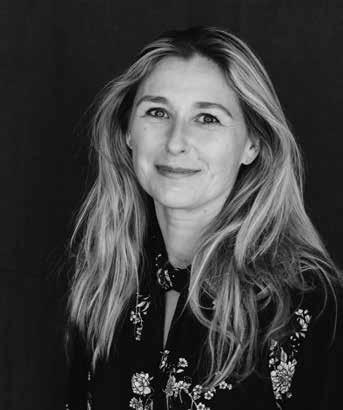
2 THE KEY ROLE OF GOVERNANCE
The involvement of top management is crucial for the success of diversity policies. In this respect, the Deloitte study gave a mixed result: in 2020, only 40% of managers and HRDs felt that general management should be the main promoter of diversity and inclusion. The L’Oréal group has been involved with the subject for twenty years, the Executive Committee regularly discusses the issue and its members attend the events we organise relating to diversity. It’s a way of embodying a policy, of leading the way. The zero tolerance that we claim in terms of discrimination is not only displayed: it is carried to the highest level. This creates a climate of trust that allows everyone to feel legitimate in expressing themselves.
Anne-Laure THOMAS, Director of Diversity, Equality and Inclusion , L’Oréal Group, France.
08 N°08 I A new way of talking business A BETTER SOCIETY
3 BRINGING EVERYONE ON BOARD, FROM MANAGERS TO EMPLOYEES
What remains is to encourage everyone to claim ownership of diversity issues. It is a question of infusing the culture of openness and benevolence into everyday life,» explains Anne-Laure Thomas. Since the employees concerned are in the best position to discuss these issues, we mobilise them to increase the number of testimonies and actions on our sites, from the head office to the factories.» Lucas Amaral Lauriano, a teacher and researcher at IÉSEG, confirms that «employee participation is essential. When they are involved in defining priorities and implementing concrete measures, they understand, accept and commit themselves more.» But beware: everyone’s commitment also depends on the involvement of managers. «Each employee must feel that his or her managers are ready to listen to their difficulties and to take on unexpected questions or situations. A rapid response to a concrete case strengthens the commitment of employees.
4 BETTING ON TRAINING
The fight against clichés or stereotypes that can lead to discrimination requires a considerable training effort, but one that is necessary to break down certain preconceived ideas: to take just one example, who knows that 80% of disabilities are invisible? At L’Oréal, each new employee spends a whole day being trained in diversity issues. This is a real challenge for managers, but an essential step, says Lucas Amaral Lauriano: «Training helps to align employees with the vision and values of the company, while clarifying issues that are not necessarily clear to everyone, such as the meaning of the acronym LGBTQIAP+, which is sometimes unfamiliar to the very people it concerns.»
5 A LONG EFFORT
Among those dangers that threaten committed companies, one of the most serious is believing that the essential has been acquired. «It’s a long-term process that must never be abandoned,» insists Anne-Laure Thomas, recalling that gender equality is the best example of this: «The issue of sexism shows that nothing can be taken for granted. There has of course been enormous progress but certain clichés remain.
6 MEASURING THE ACCOMPLISHED PROGRESS
Any policy in favour of diversity can be evaluated using different indicators. Some are legally required, such as the census of people with disabilities or the equality index, that provide an annual assessment of the pay gap between men and women in companies with more than 50 employees. Others can be implemented by HR departments, but Anne-Laure Thomas suggests going further: «to ensure that L’Oréal does not practice any discrimination in recruitment, we have organised several testing campaigns with the help of a specialist firm. In addition to the relevance of this external and objective view, it is an excellent way of evoking several different criteria.»
7 TAKING ON NEW THEMES
As society evolves, the notion of diversity is constantly changing. New expectations are emerging and previously taboo issues are being expressed more openly. Following these trends is essential for companies, explains Anne-Laure Thomas: «the obstacles to diversity are not necessarily related to old issues, but also to more recent subjects such as the mental health of young people or that of women. Certain issues that were previously rarely or poorly expressed, such as pain linked to endometriosis, are making their way into the public debate, and therefore into companies. A good example of this is the support provided to women during the menopause,» emphasises Anne-Laure
FIND MORE ANALYSIS, INSIGHTS AND RESEARCH FROM THIS EXPERT ON IÉSEG INSIGHTS:

Thomas, «30% of work stoppages among women over 45 is linked to the symptoms that affect some of them, and it is possible to imagine ways of adapting. Then as now, diversity has not finished evolving. «The idea is not to do too much, but to accompany those who need it.»
80 % OF HRDS AND LEADERS SEE DIVERSITY AND INCLUSION AS A COMPETITIVE ADVANTAGE (DELOITTE, 2020)
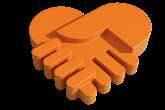 Lucas AMARAL LAURIANO, professor and researcher at IÉSEG.
Lucas AMARAL LAURIANO, professor and researcher at IÉSEG.
09 A new way of talking business I N°08
COMPANIES AND DIVERSITY: WHY DOES IT (SOMETIMES) GET STUCK?
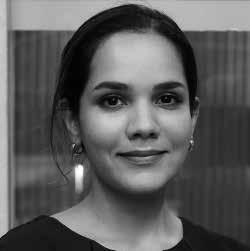

Gender, disability, age, appearance, origins... Born in the United States at the end of the 1960s, the issue of diversity in the professional world only really appeared in the French public debate in the 2000s. Eighteen years after the creation of the Charter for Diversity in the Workplace, which has now been signed by more than 4,000 organisations, where do we stand? What limits do companies face? Gouri Mohan, a teacher and researcher at IÉSEG, takes stock of the situation.
48 % OF FRENCH EMPLOYEES SAY THEY HAVE BEEN VICTIMS OF DISCRIMINATION IN THEIR PROFESSIONAL CAREER*. WHY ARE COMPANIES STRUGGLING TO TRANSLATE THEIR DIVERSITY POLICIES INTO ACTION?
The initiatives taken by companies do not always go beyond the stage of talk. Many do not really seek to dismantle the ways in which some groups are disproportionately favoured over others, whether in terms of recruitment, selection, promotion or pay.
WHAT ARE THE REASONS FOR THIS RESISTANCE?
There is not one but several reasons. The first is that achieving real change requires a sustained effort over a long period of time. This means creating and maintaining practices that may not be cost-effective in the short term. Most organisations are preoccupied with their image, without wanting to face the costs of sustainable transformation. The second reason is structural. The organisation of power favours majority groups
and, consciously or unconsciously, these groups are not always ready to open the way for minorities to achieve more influence and decision-making power within the company. The third reason is our own prejudices. We are all susceptible to personal stereotypes based on our perception of certain characteristics: age, gender, ethnic origin, language... Deconstructing these prejudices requires
Gouri MOHAN, professor and researcher at IÉSEG.
FIND MORE ANALYSIS, INSIGHTS AND RESEARCH FROM THIS EXPERT ON IÉSEG INSIGHTS:
10 N°08 I A new way of talking business A BETTER SOCIETY
“It is imperative that leaders are prepared to bear the costs associated with transforming their business. Their biggest challenge is to be convincing internally.”
changes at the collective and individual levels, through training on self-awareness, communication, cultural differences...
WHAT CAN REALLY HELP WITH EXPRESSING THE NOTION OF DIVERSITY?
It is imperative that leaders are prepared to bear the costs associated with transforming their business. Their greatest challenge is to be convincing within the company, demonstrating internally that their initiatives are justified and that they are not only being implemented in order to be like everyone else. If they feel strongly about the need for change and are able to make the rest of the organisation see that it is in its best interests, it makes a big difference. The purely economic argument for diversity is not sufficiently emphasised. By affecting employee acceptation, this can lead to the erosion of these initiatives over time.
IS THERE A FORM OF ANXIETY IN SOME ORGANISATIONS SURROUNDING DIVERSITY? DO SOME MANAGERS FEAR, FOR EXAMPLE, THAT THEY WILL LOSE SOME KIND OF COMMON IDENTITY, A CORPORATE CULTURE?

Research shows that mandatory diversity training often provokes negative reactions, sometimes to the extent of reinforcing prejudices against minority groups. Added to this is the fact that informal social networks between employees are an important resource in organisations. As most people tend to build most of their social relationships within their own demographic groups, they may interpret diversity as a threat to the status quo, to the way things have been done until now.
DO SOME COMPANIES FEAR A «QUOTA EFFECT» BY PROMOTING PEOPLE WHO MIGHT BE SEEN AS ILLEGITIMATE BY
THEIR COLLEAGUES?
This is particularly true in the case of hiring women: the recruitment of a new female candidate can be quickly qualified as a “diversity hire”, to the detriment of the candidate’s own qualities. For HR teams, demonstrating that a candidate is truly legitimate in terms of skills and experience to occupy a position identified as «diversity policy» is even more delicate than within the framework of classic recruitment. And if the person recruited lacks credibility, the choice may indeed be costly in the long run. There is another side to this phenomenon, the ‘glass cliff’. Women are hired for highrisk positions, more often than men, where they are more likely to fail...
48 % OF FRENCH EMPLOYEES SAY THEY HAVE BEEN DISCRIMINATED AGAINST IN THEIR CAREER.
BIG COMPANIES: ROOM FOR IMPROVEMENT
Are large companies leading the way in diversity and inclusion?
Yes and no. Although most have long since deployed dedicated or thematic programmes (equal pay, better integration of employees with disabilities, inclusion of LGBTQ+ employees, etc.), their effects are felt slowly. In terms of gender equality, only a small third of the 120 largest French groups have 30% women in management positions, thus implementing in advance the representation quota set by the legislator for 2027*. As far as gender diversity is concerned, the situation is even more worrying: 3.5% of the heads of executive committees and 4.2% of the members of boards of directors are from so-called visible minorities.
*Voted in December 2021 and aimed at companies with more than one thousand employees, the Rixain law imposes a quota of 30% of women among managers and members of management bodies by 2027. This rate must reach 40% by 2040.
11 A new way of talking business I N°08
*Survey realized/by Cabinet Occurrence and PwC, 2021
THE IÉSEG FOUNDATION: A NEW DEVELOPMENT STRATEGY
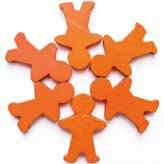
Founded in 2013, the IÉSEG Foundation has financially supported more than seventy students since its creation in order to fulfil one of its major missions: to allow as many young people as possible to have access to quality training. It now wishes to expand. The aim is to increase the number of high-impact projects.

3,5 MILLIONS D’EUROS
THIS IS THE AMOUNT OF DONATIONS THAT THE FOUNDATION HOPES TO RAISE BY THE END OF 2027. THE FOUNDATION WILL SOLICIT THE ENTIRE NETWORK OF THE SCHOOL IN FRANCE AND ABROAD.
REASSERTING ITS AMBITION
The Foundation is celebrating its tenth anniversary this year and wishes to increase its efforts to serve the IÉSEG «community»: students, graduates, companies, the socio-economic world, parents, teachers and administrative staff of the school. Laure Quédillac, corporate relations director of IÉSEG and general representative of the Foundation, believes in this ambition: «This anniversary is both an occasion and a symbol of a desire for development that is fully in line with the school’s new strategic plan. Its raison d’être does not change and the existing projects will of course be maintained. The objective will be to accompany the school in its sustainable and global development by supporting new initiatives such as training and research chairs, the development of new training programmes and the awarding of various scholarships.
FOUR AREAS OF DEVELOPMENT
The Foundation’s new strategy is based on four major ambitions. The first, dedicated to innovation and entrepreneurship, will encompass all actions designed to encourage creativity through collaboration and transversality within the IÉSEG ecosystem. The second, focused on territories and socio-economic issues, aims to support organisations in becoming aware of the fundamental transformations that are shaking up our societies. The third is focused on the ambition to provide quality education, to contribute to the development of the values and skills of young people by guaranteeing interdisciplinary learning, closely linked to the reality of the socio-economic world. «The fourth axis is the very DNA of the Foundation: to promote diversity and inclusion by multiplying projects and initiatives that can make a real, concrete and tangible difference,» explains Laure Quédillac.
Laure QUÉDILLAC, Corporate Relations Director at IÉSEG and general delegate of the Foundation.
12 N°08 I A new way of talking business A BETTER SOCIETY
HÉLÈNE GENÉTY, THE NEW FACE OF THE FOUNDATION
Hélène Genéty joined the IÉSEG Foundation in September 2022. Her first mission is to create the Foundation’s strategic plan before deploying the implementation of activities that will affect all of the school’s departments in France and abroad. She holds a Master 2 research degree in Art History and a Master 2 professional degree in Cultural Heritage Management from the University of Paris 1 Panthéon-Sorbonne. In 2022, she trained in management issues, notably through a continuing education programme at Cornell University. Before joining the IÉSEG Foundation, she set up a national service scheme dedicated to sponsorship and partnerships under the responsibility of the Secretary General of the Compagnons du Devoir, before ensuring its development during six years. Before that, she acquired expertise on the challenges of sponsorship at the Fondation du Patrimoine (Limousin Delegation). In connection with her university studies, she studied the impact of art on commercial practices within art departments (Le Bon Marché Rive Gauche, Hermès International). Her first position at UNESCO, in 2010, led her to work on the conservation of the organisation’s art collection. Returning to France in the summer of 2022 after a year in the United States where she worked in the communication and sponsorship department of a Minnesota food bank (Feeding America), she now wishes to contribute fully to the development of the IÉSEG Foundation.

EQUAL OPPORTUNITIES TO START THE IMPLEMENTATION OF THE FOUNDATION

Student grants are the most visible part of this strategy. «The development of the Foundation starts with the crucial issue of equal opportunities to help all students reach their full potential. It is a moral and societal imperative, but also the means to guarantee the experimentation of diversities by offering a plural, more fulfilling and more varied student life experience», underlines the new head of the Foundation, Hélène Genéty (see opposite). The Foundation’s objective is to set up tailor-made scholarships, adapted to the needs of students (living scholarships, excellence scholarships, international mobility scholarships, research scholarships), while working on the social openness of IÉSEG in a transverse way between the school’s different departments. The aim is to imagine and support projects with a strong societal impact: the creation of a job observatory on the integration of young people, a solidarity fund for students in financial difficulty, inclu-
sive learning modules for high school and university students: «digital accessibility for all».
: www.fondation.ieseg.fr h.genety@ieseg .fr 13 A new way of talking business I N°08
Contact
DIVERSIFYING IN ORDER TO GROW: NORAUTO’S EXAMPLE
A subsidiary of Mobivia (Midas, Altermove, Auto 5, Carter Cash), Norauto is the oldest brand in the group. Founded in 1970 by Éric Derville, the company now has a network of more than 410 centres in France and a total of more than 630 if you include the countries in which it is based, namely Spain, Belgium, Portugal, Italy and Argentina. This success owes much to the company’s ability to evolve. Jérôme Dumont, the brand’s communications and marketing manager, provides an update.
FOR MANY DRIVERS, NORAUTO IS PRIMARILY A CAR REPAIR AND MAINTENANCE COMPANY. IS THIS STILL THE CASE?
This is indeed our business since 1970. But it has evolved: today, Norauto is perceived more as a player capable of offering all drivers solutions to support them in their mobility during a period that is marked by the need to move towards more responsible driving. Whether technological or behavioural, motorists are going to be faced with unprecedented transformations, all within a tense economic context and facing considerable environmental challenges. This transition has led us to diversify our services and products in
order to support new uses. We have thus developed product rental services which are proving to be a real success, particularly for snow chains.
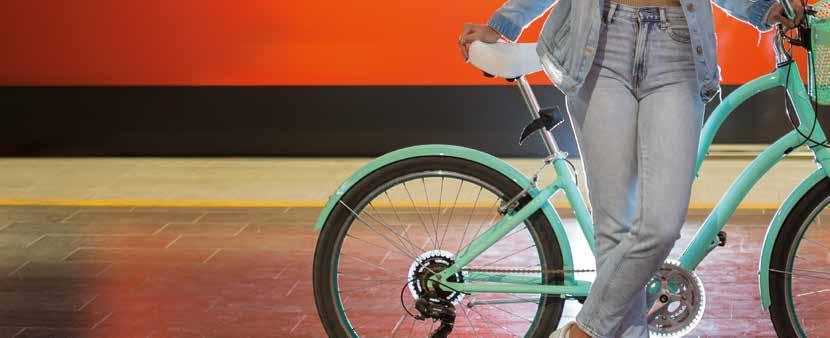
CAN WE SAY THAT DIVERSIFICATION IS PART OF NORAUTO’S HISTORY?
The automobile has always evolved and our job is to accompany drivers. We have always been present and attentive to the evolution of uses and needs. For example, we have just launched electric charging cables. Certain services are part of this diversification, such as glazing in conjunction with Carglass. Adapting, innovating and evolving is an absolute
14 N°08 I A new way of talking business BUSINESS AND RESEARCH
“Whether technological or behavioural, motorists are going to face unprecedented transformations, all within a tense economic context and facing considerable environmental challenges.”
necessity. This is how we gain the trust of our customers and it is no coincidence that, in our category, we are France’s favourite brand.
BEYOND REPAIR AND SALES, DOES DIVERSIFICATION ALSO INVOLVE THE SERVICES YOU OFFER?
The context requires us to do this: development of digital uses, behavioural changes reinforced by confinement... We are therefore starting to deploy a home service, such as going on site in the event of a battery failure. This is a service that is particularly appreciated by our customers.
LAST SPRING YOU LAUNCHED AN OFFER AIMED AT PROFESSIONALS, WITH A COMPANY BICYCLE HIRE SERVICE. NORAUTO IS NOT NECESSARILY ASSOCIATED WITH SO-CALLED «SOFT» MODES OF TRANSPORT. AREN’T YOU AFRAID THAT YOUR CUSTOMERS WILL HAVE TROUBLE FINDING THEIR WAY AROUND?

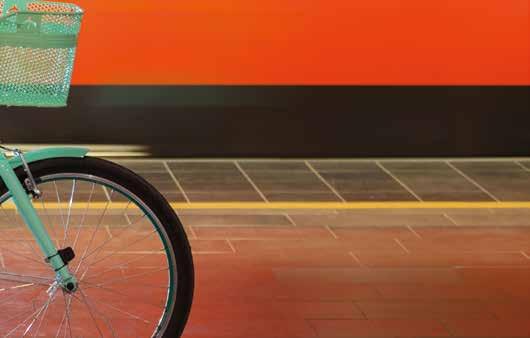
We believe that a responsible motorist is a motorist who knows how to do without his or her vehicle in certain cases, for example, to turn to a bicycle, and particularly to electric models. We don’t think that this is a risk, but rather a complementary service that we must offer. We have just opened a new concept in the centre of Lille called «Norauto urban solutions» which focuses on soft modes of transport. This is not so much a new business as an extension of our original activity.
HOW TO DIVERSIFY SUCCESSFULLY? SHOULD YOU SURROUND YOURSELF WITH PARTNERS, BUY OTHER COMPANIES OR SHOULD EVERYTHING BE INTERNALIZED?
Probably all three... There is no magic bullet. In the case of our agreement with Carglass, we chose to join up with a recognised leader in order to ensure an excellent customer experience. Some services are designed in partnership, others will be designed in-house because they fit the company’s DNA and because we have the necessary skills and resources. Our only rule for making these decisions amounts to two questions: what does the customer want? And how do we ensure that we offer the best solution?
Jérôme DUMONT, communication and marketing manager.
15 A new way of talking business I N°08
“Adapting, innovating and evolving is an absolute necessity. This is how we win the trust of our customers and it is no coincidence that, in our category, we are France’s favourite brand.”
SUPPLY CHAIN: THE CLASSIC TALE OF PUTTING ALL YOUR EGGS IN THE SAME BASKET
Pandemic, war in Ukraine, shortage of raw materials... Several major events have changed the way our societies and their companies obtain the products they need. Is the globalisation of trade reaching its limits? Should we diversify our supply methods to secure them? Two specialists in logistics and the supply chain, Verena Ehrler and Ronald McGarvey, professors at IÉSEG, provide some answers.
IS THERE A SUPPLY CRISIS?
While the disruption of the major circuits that feed the economy is not new in itself, the last few months have been marked by powerful disruptions, explains Verena Ehrler: «the pandemic and the war in Ukraine have shown the need to improve the sustainability, efficiency and resilience of supply chains, acting as an accelerator.» Especially as these disruptions are not about to end, says Ronald McGarvey: «The risks inherent in globalised supply chains have long been known. But these disruptions have been confined to a specific geographical region or sector. Covid has had an impact on all regions and sectors,» explains the researcher, who warns that «climate change will have similar effects, albeit distributed in time and space. New supply chain strategies are needed in order to avoid similar supply shortages in the future.»
WHICH SECTORS ARE THE MOST AFFECTED?
While the supply challenge affects all sectors, the food industry is particularly affected, explains Verena Ehrler: «Soil erosion and extreme weather conditions will impact on agriculture. Current inflation is already leading to higher food costs, and the trend will be even more pronounced if we don’t take adequate measures. As another example of the domino effect, the shortage of semiconductors is having a major impact on a huge number of

FIND MORE ANALYSIS, INSIGHTS AND RESEARCH FROM THESE EXPERTS ON IESEG INSIGHTS:
industries, observes Ronald McGarvey: «Car manufacturers have had to cut back production by seventeen million vehicles in 2021 and 2022. The highly complex nature of the semiconductor supply chain and the global reliance on manufacturers concentrated in a limited geographical area makes it a textbook case of the risks inherent in a modern, large-scale supply chain.»
DOES DIVERSIFYING ITS SUPPLY CHAINS ENABLE IT TO RESPOND TO UNCERTAINTY?
Faced with these present or future disruptions, how do we react? Three interrelated strategies can ensure the resilience of a company’s supply chain,» says Ronald McGarvey, «optimal visibility across the supply chain, maintaining a buffer stock
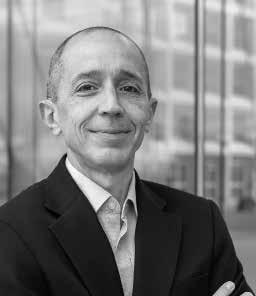 Verena EHRLER et Ronald MCGARVEY, professors at IÉSEG.
Verena EHRLER et Ronald MCGARVEY, professors at IÉSEG.
16 N°08 I A new way of talking business BUSINESS AND RESEARCH
UPDATING THE DRAGONS
of scarce or slow-to-supply products, and improved agility in order to quickly switch to other products or processes. As for the need to turn to new suppliers, it all depends on the specific situation of each company, stresses Verena Ehrler: «There is no single solution but waiting is not an option. Diversifying your sources of supply avoids putting all your eggs in one basket, while at the same time ensuring the quality of your supplier relationships and focusing on a limited number of solid relationships. McGarvey warns that «given the growing expectations of consumers for environmental sustainability, companies need to look after their reputation and therefore monitor the practices of their suppliers. Any expansion of supply sources mechanically increases this burden.»

40 million players worldwide, hundreds of thousands of hours of streaming on Twitch, incessant references to pop culture... Has D&D become mainstream?
A subsidiary of the American group Hasbro, the publisher Wizards of the Coast can boast of having succeeded in a delicate gamble: diversifying its range and its audience. To dust off the image of a hobby long associated only with geeks, the publisher first bet on enriching a universe initially inspired by fantasy classics, Lord of the Rings in particular. How did they do this? By expanding the playing field to offer other universes: vampire or gothic worlds, London in the time of Sherlock Holmes, mysteries of the Orient inspired by the Thousand and One Nights... Enough to attract new fans, seduced by the freedom of a game that allows everyone to create their own scenarios. It remains to be seen whether it can reconcile the expectations of three generations of fans - the first of which saw the arrival of new players, but also new female players. The slightly stereotyped, very European and very male world of the first years has been replaced by a game that is more respectful of differences, freed from the simplistic approach of the early years, and thus gaining in depth and diversity. A positioning that Wizards of the Coast asserts by accepting to break with certain easy or hurtful stereotypes - even if it means revisiting its own classics by erasing clichés that no longer hold, as in Curse of Strahd, a classic, that is set in the equivalent of the Carpathians in Dracula’s era. The original work involved the Vistani, a fictional people directly inspired by gypsy culture - alas to the point of caricature. The latest edition has just been translated into French and has been edited in order to remove certain elements that are considered unacceptable today.
It is the oldest and most famous role-playing game. Popularised by the Stranger Things series, Dungeons & Dragons (D&D) is still evolving, almost 50 years after its birth. The aim is to attract new players without offending them.
17 A new way of talking business I N°08
INTEGRATION: THE CHALLENGE OF DIVERSITY
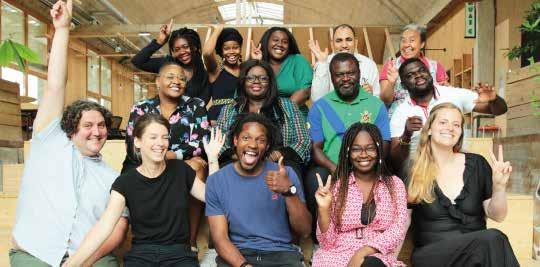

After Paris, Lyon, Nantes and Strasbourg, it is now the turn of Bordeaux and Lille. In the capital of the Hauts-deFrance region, the Lille branch of the Singa association, which specialises in helping new arrivals, has launched an incubator designed to support those amongst them who are looking to set up their own business. The aim is to contribute to the economic dynamism of the region, of course, but also to change the way people look at migrants, explains
WHAT ARE SINGA’S OBJECTIVES?
Ten years ago, its founders* were interested by an observation made by the United Nations High Commissioner for Refugees (UNHCR): in France, only 12% of those who arrive on our territory are in contact with people other than social services specialists. Singa’s philosophy is that their integration depends on strengthening the links between them and the rest of the population. Historically, the NGO offered artistic, linguistic and sporting events designed to break down
barriers and prejudices. These activities continue, but since then Singa has also turned its attention to the issue of economic integration by supporting potential entrepreneurs who have decided to create their own businesses in France. By helping them develop their skills and bring their projects to life, Singa aims to help them reveal their talents and at the same time promote economic activity in the regions.
THROUGH YOUR ACTIONS, DO YOU WISH TO CHANGE THE SOMETIMES NEGATIVE IMAGE ASSOCIATED WITH THESE NEWCOMERS?
The collective imagination too often associates the word «migrant» with humanitarian costs or security issues. One of our aims is to counter this «us» versus «them» narrative by demonstrating that newcomers are a factor of mutual enrichment, social innovation and economic dynamism.
Marie PATFOORT, Entrepreneurship Coordinator for Singa in Lille, is also studying for the exec MBA at IÉSEG.
18 N°08 I A new way of talking business GOOD NEWS
#TO CONTACT THE ASSOCIATION contactlille@singa.fr
#TO FIND OUT MORE www.singafrance.com
#FACEBOOK
https : //www.facebook.com/SingaLille/
#INSTAGRAM @singa_lille
#LINKEDIN
https : //www.linkedin.com/company/singa-lille/
SINGA, A COMMUNITY AT THE SERVICE OF INCLUSION
Created in 2012, Singa («link» in Lingala, a Bantu language spoken in Congo) now has more than 50 000 members in 18 cities and seven countries. Founded to facilitate the integration of new arrivals - refugees, migrants, asylum seekers - in their host country, the association supports them by helping them develop their social and professional network, whether it is to find a job or create a business. Since 2016, its incubators have supported the creation of 320 start-ups.
IN 2022, SINGA LAUNCHED ITS SIXTH INCUBATOR IN LILLE. WHAT DOES THIS PROGRAMME CONSIST OF AND WHO IS IT AIMED AT?
This six-month support programme consists of offering people who arrive in France and wish to set up their business, a set of tools and resources to help them secure their structure, companies, associations, start-ups etc. Each personal project benefits from regular individual support, but we also offer group training sessions to put the entire class in contact with experts from different fields: commercial strategy, communication, accounting and financial management, legal aspects, etc. These six months are also an opportunity for the incubates to develop their professional contacts through networking operations. The first class, launched in 2022, supported around ten entrepreneurs. The second is currently underway. In all, some twenty people will benefit from this programme in 2023.
HOW DO YOU CHOOSE THE PEOPLE AND PROJECTS YOU ACCOMPANY?
Our selection criteria are not particularly detailed or restrictive. Apart from the appetite of the incubates for this collective approach, we ask them to have a B2 level in French as a Foreign Language (FLE) and thus ensure that they can follow the training provided. As the aim is to secure the company’s launch phase in a
few months, the programme is aimed at candidates who already have a relatively precise idea of their market, their economic model and the products or services they wish to offer. We also offer other types of follow-up for those whose project is not yet sufficiently mature.
WHAT IS THE PROFILE OF THE FIRST TEN ENTREPRENEURS SUPPORTED IN LILLE?
The first promotion brought together six women and four men of very different ages, nationalities and profiles. Their activities cover a wide range of fields, from fair trade to publishing, IT, communication, digital and catering. For example, one of our incubates, Maryse, is launching her brand of fair-trade coffee from organic plantations in Congo Kinshasa. A journalist, Dashamir, created Albanian Daily, a broad French-Albanian press website, after training in media management at the IAE in Lille. For his part, Pitschou wants to found an association for the reconditioning of computer equipment with the aim of training people who are far removed from employment. Adel is launching a drinks business based on organic pomegranate juice from Tunisia, sourcing it from small local producers committed to sustainable and eco-responsible agriculture... It’s extremely varied.
WHICH PARTNERS DO YOU WORK WITH?
All our programmes are financed by local, national or international structures: foundations, BPI France, etc. We can also count on the support of the players in the entrepreneurial ecosystem, which is highly developed in Lille: BGE, local missions, CMAs, etc. We also rely on professionals in the social support and aid systems for asylum seekers and refugees, to invite them to direct project leaders towards us. Finally, we invite all professionals who wish to join us to share their expertise and their networks with our incubates.
19 A new way of talking business I N°08
*Nathanaël Molle, Guillaume Capelle and Alice Barbe.
MOBILITY: IT IS CHANGING, BUT…
With traffic up by 11% over the first nine months of 2022 compared with 2021*, the trend is confirmed: the bicycle is the big winner in a world of changing mobility, at least in urban areas. To the point of challenging the omnipresence of the car?
More bikes, fewer cars? The impression that the number of cyclists is increasing at a rapid rate along the main urban routes is not an illusion, confirms Mathieu Chassignet, mobility engineer at the regional office of ADEME Hauts-de-France. «The craze didn’t start with Covid, but cycling has in fact increased by more than a third in France between 2019 and 2022. And the increase is continuing». Very much in vogue at the start of the pandemic due to health reasons, the «velotaf»(“commuter-bike”) has taken hold, with many employees turning to cycling to avoid public transport at rush hour.
A SERIES OF DIVISIONS
But this diversification of travel modes does not affect all people in the same way, explains Mathieu Chassignet, pointing to a series of divisions that affect socio-professional categories in particular: «Twenty years ago, cycling was more common among people of modest means, but the trend is now reversing. Those who take up cycling today are often executives and people from higher socio-professional groups. Age also plays a role, and this is the main warning of the studies carried out in this field: «children are travelling less and less by bike. Between 2008 and 2019, the practice has halved among the under-18s,
mainly due to the fear of accidents but also taking into account a social norm which now means that children are less and less likely to be allowed to travel alone in public spaces.» In fact, one in two schoolchildren is dropped off in a car by their parents, compared with one in four at the beginning of the 2000s. Another distinction is that of gender: «the practices of men and women are different. Men travel five to ten times more than women on two motorised wheels and are more likely to take up cycling. Women travel more on foot or by public transport. The last major difference is the geographical criterion: «in rural and peri-urban areas, cycling continues to stagnate», explains Mathieu Chassignet, for whom this is no coincidence: «the big cities are the only areas where an effort has been made to make cycling safer, for example by generalising the 30 km/h zones. In suburban areas, nothing really challenges the place of the car.
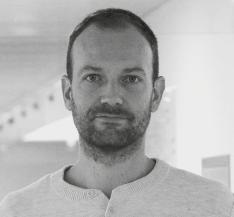 Mathieu CHASSIGNET, mobility engineer at ADEME Hauts-de-France regional office.
Mathieu CHASSIGNET, mobility engineer at ADEME Hauts-de-France regional office.
20 N°08 I A new way of talking business GOOD NEWS
MILLIONS
BICYCLES WERE SOLD LAST YEAR COMPARED TO 1.6 MILLION NEW CARS.

BUSINESS ANGELS: DIVERSITY IN POWER
Far from the image we sometimes have of them, the profile of business angels has become more democratic over time, even if their objective remains the same: investing in young companies in which they believe in order to contribute to their success. And it’s not just tech that attracts them! Benjamin Bréhin, General Delegate of the National Federation of Business Angels, France Angels, since 2011.
HOW WOULD YOU DEFINE THE ROLE OF A BUSINESS ANGEL TODAY?
For an investor, taking a share in the capital of a company in which you believe is certainly a way of diversifying your assets, but first and foremost a commitment that requires passion, dedication and curiosity. You don’t just invest your own money, but also your time. Why do you do this? Because we believe in the growth potential of a young company whose beginnings we are accompanying and because we believe in the team that leads it. Whether they are young or not so young, these new entrepreneurs need funds, of course, but also support. Our role is to bring them our experience, our network of contacts and our advice.
PUBLIC EFFORT ON THE HORIZON
The moral is that cycling increases where it is given the means to increase. This is not yet the case, with local authorities spending ten euros per inhabitant per year on cycling, compared to 300 for cars. The State is aware of this: while it had planned in 2018 to commit 350 million euros over seven years to cycling, an additional 150 million was released as part of the recovery plan and 250 million should be spent in 2023 alone, 200 of which will be dedicated to infrastructure. A good reason to re-inflate the tyres of your old bicycle...
*Opinion poll for “Vélo & Territoires”, October 2022
THE MEDIA, BUSINESS ANGELS ARE OFTEN ASSOCIATED
IN
WITH THE WORLD OF HIGH TECH AND DIGITAL. IS THIS REALLY TRUE?
The projects we support are much more diverse than you might think, as is the profile of the business angels. The cliché of the billionaire who invests in a start-up does not correspond to the reality of the profiles and backgrounds of the investors that France Angels has brought together since 2001. Since Covid, there has been a real appetite for projects focused on people, health and society. Tech is certainly an area of opportunity. We are probably not going to invest in classic business, but all sectors have their assets, including within the societal or environmental field in all the regions where we are establishedproximity is particularly important to us. Last November, for example, we launched AgriAngels, a new network dedicated to projects being set up in the agricultural world. A growing number of our members are turning to impact projects.
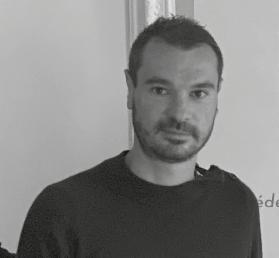
2.8
21 A new way of talking business I N°08
Benjamin BRÉHIN, General Delegate of the National Federation of Business Angels, France Angels.
A QUESTION OF TRUST
Growing mistrust, marked disinterest, generational divides... Does journalism still have a future at a time when 26% of French people, all generations combined, say they get their information on the Internet via social networks rather than through the media*? Why are they no longer interested? How can we repair a link that is weakening? What journalistic content should be offered to attract an increasingly critical readership? Edouard Reis Carona, editor-in-chief of Ouest-France, takes stock.
680 000
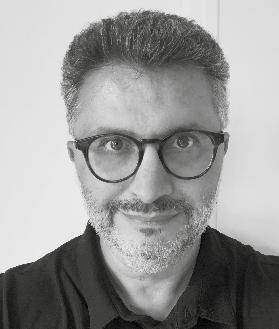
COPIES OF ITS PAPER EDITION EVERY DAY. INCLUDING ITS DIGITAL VERSIONS, THE TITLE REACHES
23 MILLIONS
READERS EACH MONTH.
IS OUEST-FRANCE A REGIONAL NEWSPAPER OR A NATIONAL DAILY?
Both! Whether an event is happening nearby or on the other side of the world, our job is to cover it with the same rigour, with an editorial ambition that does not oppose the local, the national and the international, but that includes the village and the world. Ouest-France has always had international, national and European editorial departments that complement a particularly dense regional network. At the local level, Ouest-France can count on some sixty editorial offices spread throughout its territory and on a network of more than 3,000 local correspondents. At national and international level, the title relies on its various departments and a network of 200 freelance correspondents, spread throughout the world. This is what allows our readers to access all the information every day, without needing another newspaper. Ouest-France is a comprehensive, generalist, popular daily newspaper, accessible to all, with the lowest price per issue in France.
THE PRESS IS SOMETIMES ACCUSED OF NOT OFFERING AN ACCURATE REFLECTION OF THE STATE OF THE WORLD. HAVE YOU SEEN CERTAIN PREVIOUSLY MARGINAL THEMES GAIN MORE EDITORIAL WEIGHT IN RECENT YEARS?
Two themes have taken on a new importance. The Yellow Vests crisis has highlighted a real gap between a section of citizens and the media, which is accused of being the sole voice of the powerful. We have sought to correct this perception by placing even greater emphasis on the notion of local reporting and investigations, by covering more issues of daily life, purchasing power... The other major topic that is emerging is the environment and the climate issue, which has become an essential cross-cutting angle of our editorial project. We are gradually training all our journalists to integrate this dimension into their daily work, at every stage. We provide them with a set of tools to help them do this. As with other issues such as gender or equality, we have also set up skills networks that bring together journalists who are experts in a given sub-
Édouard REIS CARONA, chief editor at Ouest-France.
OUEST-FRANCE IS THE WORLD’S LEADING FRENCH-LANGUAGE NEWSPAPER, SELLING
22 N°08 I A new way of talking business NICE TO MEET YOU
ject. To take the example of the trial of the Bataclan attacks, all those who covered the subject in our columns are police-justice specialists.
LIKE OTHER PRINT MEDIA, OUESTFRANCE HAS GONE DIGITAL. HOW DOES YOUR ONLINE WORK FIT IN WITH THE PRINTED EDITION?
We do not want to oppose different forms of media and we do not write either for the print edition or for the web, but in order to produce quality journalistic content. Only when it is ready do we ask ourselves what is the best way to distribute it. We are fortunate to have different desks that handle events at different levels. The first one follows the information in real time and covers the news as closely as possible, in a web first logic. A few hours later, the initial information is reworked with the help of journalists and specialized departments, whose job is to enrich the viewpoint and bring expertise to a content that can be put online or directed to the print edition, depending on the case. The two universes complement each other and do not clash; neither medium cannibalizes the other. Even if the number of web subscribers should eventually exceed the number of print subscribers, the two curves are growing in parallel.
IT IS OFTEN SAID THAT JOURNALISTS LOOK ALIKE, COME FROM THE SAME SCHOOLS, SHARE THE SAME POINTS OF VIEW... HOW DO YOU ENSURE THE DIVERSITY OF THE TEAMS?
This issue is partly related to that of gender equality. In recent years, OuestFrance has implemented a proactive HR policy to work on equal pay, to allow more women journalists to reach management positions and to achieve a better balance in editorial departments that were once more male-dominated. Out of ten journalists recruited today at Ouest-France, six or seven are women. In terms of diver-
A BROKEN LINK
According to the annual La Croix barometer, the relationship between the media and the French is not going well, and the French are less and less interested in the news. In 2022, only 62% of those surveyed were still interested in the media, a drop of five points in one year. The trend is even more pronounced among 18-24 years old, only 38% of whom are interested in current events, which is 13 points less than in 2021. In the hit parade of criticisms expressed by the respondents, it is the reliability of journalists’ work that is highlighted: only 44% of those questioned believe that the media provide reliable and verified information and 62% consider that journalists are not independent of political power. There is a paradox that also offers a glimmer of hope: despite this crisis of confidence, the media are still considered important tools for the proper functioning of democracy. 83% of those surveyed said they expect journalists «to point out false information that is being disseminated.”
sity, we seek to recruit profiles that are as representative as possible of society as a whole. The journalism schools help us in this by recruiting students who are probably more different from each other than in the past. This also involves a form of internationalisation: I have personally recruited an Argentinean in digital, a Brazilian for social networks...
IS YOUR READERSHIP REPRESENTATIVE OF SOCIETY OR ARE CERTAIN PROFILES OVER-REPRESENTED?

The fact that 70% of the Internet users who visit our website do not live in the west of France shows that Ouest-France has become a national news player. In the regions and in print, our readership is still rather old and rural, very attached to a newspaper to which they often remain subscribers all their lives. The challenge is to make this audience younger, which requires both content and a suitable subscription offer: younger people do not always have €35 or €40 to spend each month on a medium.
*Opinion poll for La Croix, 2022.
23 A new way of talking business I N°08
IÉSEG INSIGHTS

> Empowering changemakers with insights, analyses and research from IÉSEG Faculty.
DISCOVER INSIGHTS.IESEG.FR/EN
EMPOWERING CHANGEMAKERS FOR A BETTER SOCIETY
















 Lucas AMARAL LAURIANO, professor and researcher at IÉSEG.
Lucas AMARAL LAURIANO, professor and researcher at IÉSEG.











 Verena EHRLER et Ronald MCGARVEY, professors at IÉSEG.
Verena EHRLER et Ronald MCGARVEY, professors at IÉSEG.



 Mathieu CHASSIGNET, mobility engineer at ADEME Hauts-de-France regional office.
Mathieu CHASSIGNET, mobility engineer at ADEME Hauts-de-France regional office.





